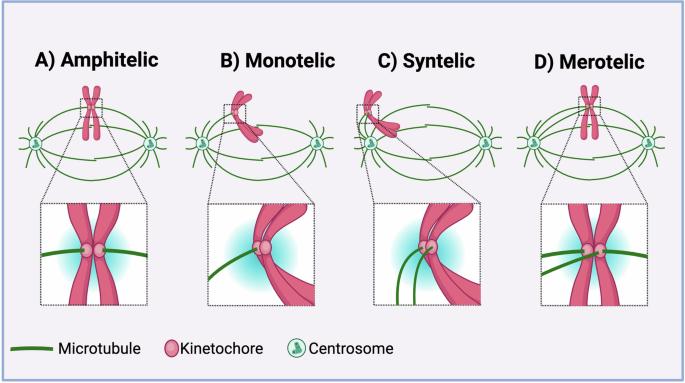Recent insights into the causes and consequences of chromosome mis-segregation
IF 6.9
1区 医学
Q1 BIOCHEMISTRY & MOLECULAR BIOLOGY
引用次数: 0
Abstract
Mitotic cells face the challenging task of ensuring accurate and equal segregation of their duplicated, condensed chromosomes between the nascent daughter cells. Errors in the process result in chromosome missegregation, a significant consequence of which is the emergence of aneuploidy—characterized by an imbalance in chromosome number—and the associated phenomenon of chromosome instability (CIN). Aneuploidy and CIN are common features of cancer, which leverages them to promote genome heterogeneity and plasticity, thereby facilitating rapid tumor evolution. Recent research has provided insights into how mitotic errors shape cancer genomes by inducing both numerical and structural chromosomal changes that drive tumor initiation and progression. In this review, we survey recent findings regarding the mitotic causes and consequences of aneuploidy. We discuss new findings into the types of chromosome segregation errors that lead to aneuploidy and novel pathways that protect genome integrity during mitosis. Finally, we describe new developments in our understanding of the immediate consequences of chromosome mis-segregation on the genome stability of daughter cells.


对染色体错误分离的原因和后果的最新认识
有丝分裂细胞面临着一项极具挑战性的任务,即确保其复制的、凝集的染色体在新生子细胞之间准确、平等地分离。这一过程中的错误会导致染色体的错误分离,其重要后果是出现以染色体数目不平衡为特征的非整倍性以及与之相关的染色体不稳定性(CIN)现象。非整倍体和 CIN 是癌症的共同特征,癌症利用它们促进基因组的异质性和可塑性,从而促进肿瘤的快速进化。最近的研究深入揭示了有丝分裂错误如何通过诱导染色体的数量和结构变化来塑造癌症基因组,从而推动肿瘤的发生和发展。在这篇综述中,我们回顾了有关非整倍体的有丝分裂原因和后果的最新发现。我们讨论了导致非整倍体的染色体分离错误类型的新发现,以及在有丝分裂过程中保护基因组完整性的新途径。最后,我们将介绍染色体分离错误对子细胞基因组稳定性直接影响的新进展。
本文章由计算机程序翻译,如有差异,请以英文原文为准。
求助全文
约1分钟内获得全文
求助全文
来源期刊

Oncogene
医学-生化与分子生物学
CiteScore
15.30
自引率
1.20%
发文量
404
审稿时长
1 months
期刊介绍:
Oncogene is dedicated to advancing our understanding of cancer processes through the publication of exceptional research. The journal seeks to disseminate work that challenges conventional theories and contributes to establishing new paradigms in the etio-pathogenesis, diagnosis, treatment, or prevention of cancers. Emphasis is placed on research shedding light on processes driving metastatic spread and providing crucial insights into cancer biology beyond existing knowledge.
Areas covered include the cellular and molecular biology of cancer, resistance to cancer therapies, and the development of improved approaches to enhance survival. Oncogene spans the spectrum of cancer biology, from fundamental and theoretical work to translational, applied, and clinical research, including early and late Phase clinical trials, particularly those with biologic and translational endpoints.
 求助内容:
求助内容: 应助结果提醒方式:
应助结果提醒方式:


